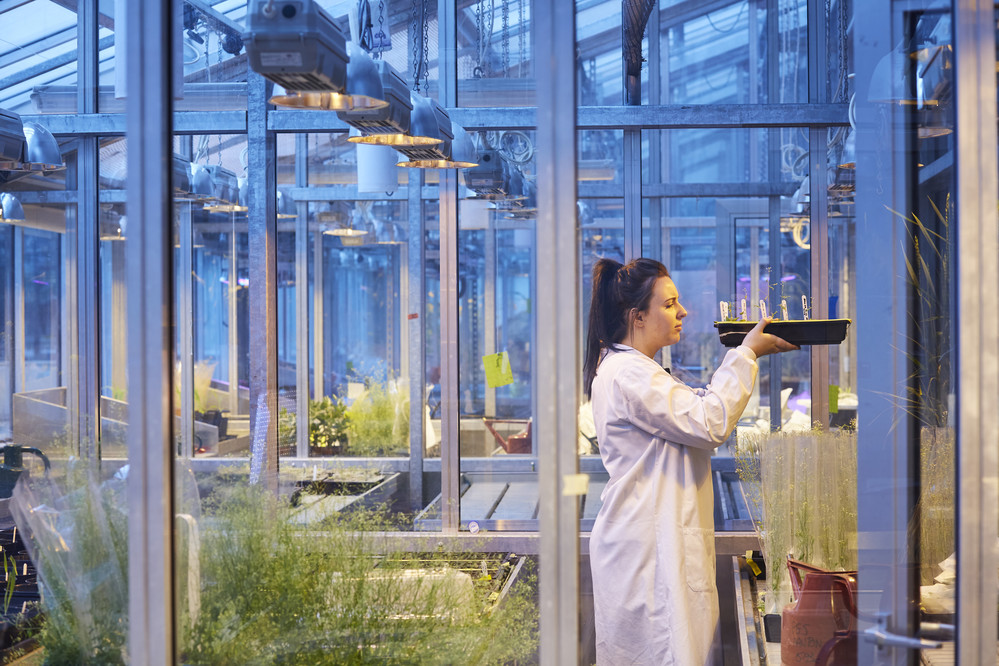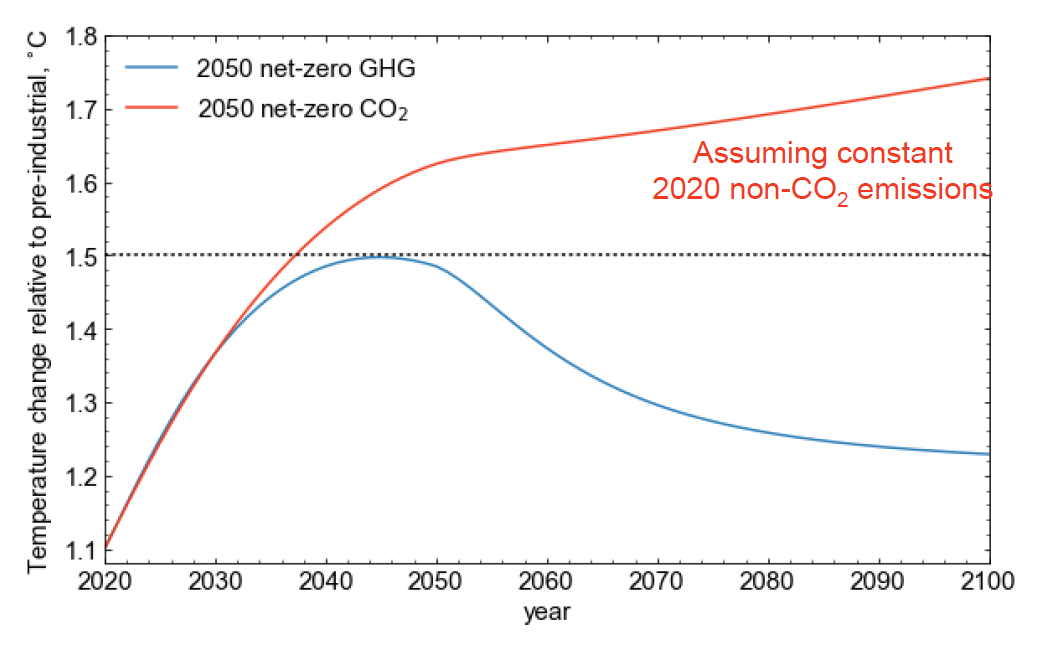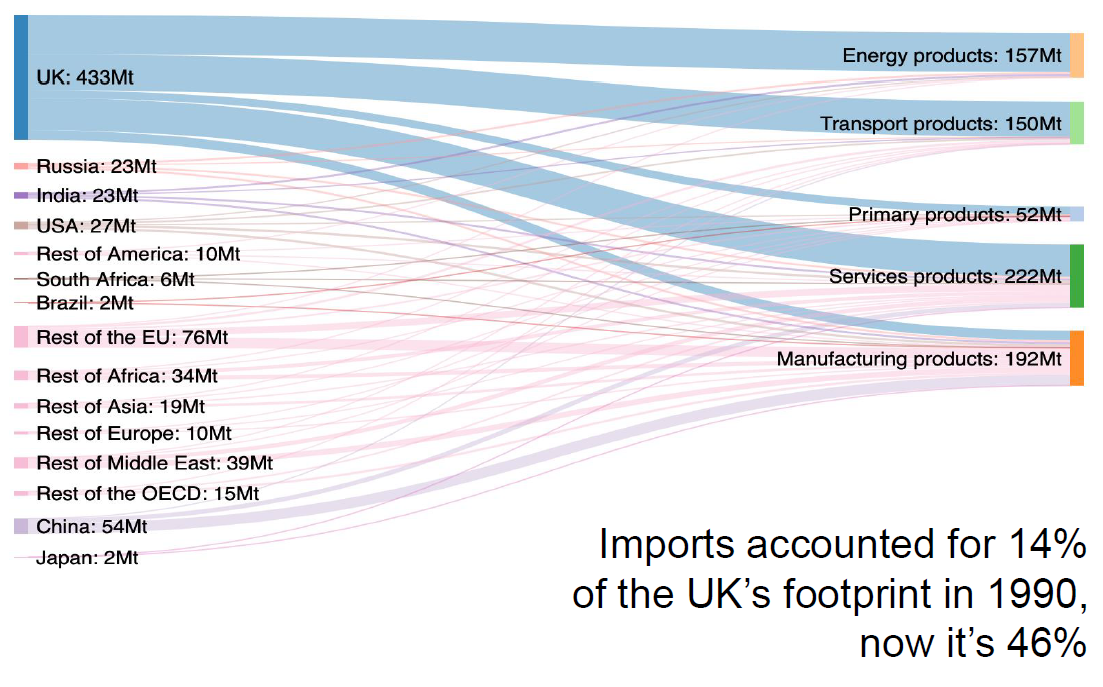The important role for researchers in achieving net-zero emissions

‘Net-zero’ has become an increasingly familiar term over the past few months, appearing in policy announcements, conference titles and opinion pieces. Nations, cities and institutions have been making commitments to reduce greenhouse gas emissions to net-zero in a bid to limit global average temperature rise.
A number of University of Leeds academics have been central to recent advancements of the net-zero emissions agenda. Nationally, Leeds researchers were involved in authoring the seminal Committee on Climate Change (CCC) net-zero report, which underpins the UK commitment to net-zero greenhouse gas emissions by 2050. Regionally, the Leeds Carbon Roadmap was developed by a team led by University experts. A recent seminar brought these researchers together to provide an overview of net-zero and, importantly, to highlight the current gaps in the research necessary to achieve it.
Fittingly, this seminar came shortly after the University announced its own bold commitments for net-zero by 2030.
Interdisciplinarity
The seminar was opened by the Dean for Interdisciplinary Research, Stuart Taberner, whose introduction set the tone for the seminar, putting interdisciplinary collaboration front and centre. Collaboration across disciplines, and across areas of society and the economy, is essential to meet the unprecedented scale and complexity of the net-zero challenge. The cross-campus net-zero emissions research initiative sets this out in more detail.
Research needs
A series of short presentations from each panellist and an extended discussion surfaced a number of critical research gaps:
- Joined-up solutions
Panellists emphasised the importance of a systemic approach to achieving the ambitious net-zero emissions targets. The transition to a net-zero UK is technically achievable, but demands a major shift in approach: from incremental and siloed to cohesive and system-wide.
How might we most effectively link targets to substantive action across local, national and international scales, and across political boundaries?
- Equitable accounting
Though CO2 is the emission most commonly associated with climate change, the net-zero target encompasses a broader set of greenhouse gases. This detail is crucial to limit the increase in global mean temperature to well below 2°C – pursuing efforts for 1.5°C – as set by the Paris Agreement. Whilst a net-zero target addressing all greenhouse gases would lead to a plateau in temperature increase around 2050, a net-zero target focused solely on CO2 – if other emissions continue at their present rates – would see temperatures continue to rise.

Indicative pathways showing the difference between global 2050 net-zero GHG and 2050 net-zero CO2 targets. Credit: Dr Chris Smith
Emissions of greenhouse gases have differed vastly between nations and through history. These gases vary in their contribution to warming, and how long they remain in the atmosphere.
How might we account for these complexities in calculations of a remaining carbon budget? How might we equitably apportion that budget between nations and people?
- Accounting for consumption
Though some official figures may indicate a successful reduction trajectory, the inclusion of imports in calculations of UK greenhouse gas emissions paints a less rosy picture. Imports now account for a far larger proportion of the nation’s footprint than in 1990, principally through manufactured goods. Emissions from air travel have increased 246% since 1990.
How might we best account for these in net-zero calculations?

Sources of emissions embodied in the UK’s consumption of goods (2016). Credit: Dr Anne Owen
- A social licence for transformative change
A growing number of cities and councils have declared a climate emergency, though very few of these have associated plans of action and delivery*. To devise and deliver the fundamental changes necessary to achieve net-zero emissions, regional authorities not only require a mandate from communities, but also meaningful, active participation. The urgency of the issue demands new ways of engaging people in local decision making.
How might we most effectively engage and involve citizens in the planning and delivery of the pathway to net-zero emissions?
*The Leeds Climate Commission has developed a roadmap to zero carbon by 2050 for the city of Leeds.
- Just transitions
Such fundamental transformation, which is necessary at all levels – institutional, regional, national and international – will bring both opportunities and challenges across society and the economy. The transition to net-zero must be devised and managed to ensure that burdens and benefits are fairly distributed, and to protect the most vulnerable populations and communities.
How might we best envision, and then put into practice, a just transition?
Urgency and action
The prevailing sense amongst both panellists and attendees was one of urgency. Now is not the time for focusing solely on long term aspirational ideas, but for immediate and rapid action. So ultimately, one question in particular stood out: As a researcher, how can I best use my (limited) time?
The answer was one we must all take to heart: Action is required at every level, in many different places, and in a variety of guises. So get out there, try different things, share solutions widely, and equip other people to do the same.
Seminar panellists
Professor Piers Forster, Director of the Priestley International Centre for Climate, co-authored the CCC net-zero report
Dr Chris Smith, Research Fellow, developed the Finite Amplitude Impulse Response (FaIR) model employed in analysis for the CCC net-zero report
Professor Peter Taylor, co-director of Energy Leeds, was involved in the UK Expert Advisory Group for the CCC net-zero report
Dr Anne Owen, University Academic Fellow, provided key evidence on UK’s carbon footprint which features in Chapter 3 of the CCC net-zero report, focused on ‘Reaching net-zero emissions in the UK’
Professor Andy Gouldson, Chair of the Leeds Climate Commission, led the team that produced roadmap to zero carbon for the city
